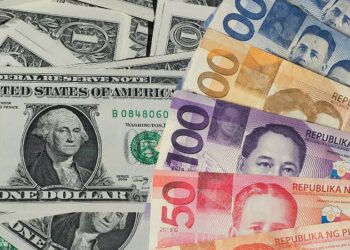Julian Assange, the enigmatic founder of WikiLeaks, has reached a consequential plea agreement with the U.S. Department of Justice, signaling a crucial juncture in a protracted legal drama that has extended for more than ten years.
This plea deal represents the culmination of Assange’s legal battles and a landmark event in the broader context of journalistic rights and national security.
By agreeing to plead guilty to a single charge under the Espionage Act—specifically, the unlawful conspiracy to obtain and disseminate classified national defense information—Assange avoids additional prison time.
This resolution concludes his lengthy struggle with legal systems across multiple nations and ignites a robust dialogue on the delicate equilibrium between safeguarding press freedoms and maintaining national security.
The case against Assange has been a flashpoint in debates over the limits of journalistic freedom, particularly regarding the handling of sensitive or classified information.
As this chapter in Assange’s life closes, the implications of his plea deal reverberate far beyond the courtroom, challenging legal precedents and ethical norms that govern the intersection of journalism, activism, and state secrecy.
The Deal and Its Provisions
Under the terms of the plea deal, Julian Assange, the founder of WikiLeaks, will admit guilt to a singular charge—conspiring to obtain and disseminate information critical to national defense unlawfully.
This charge underlines the gravity of the accusations against him, focusing on the deliberate attempt to breach governmental confidentiality.
In exchange for his guilty plea, Assange will be credited with the 62 months he has already endured in a high-security prison in the United Kingdom, thereby circumventing any additional incarceration.
The federal court in the Northern Mariana Islands is the chosen venue for entering this plea. This location was not arbitrarily selected; it reflects a strategic decision by the U.S. legal authorities.
It accommodates Assange’s logistical and personal concerns, including his strong desire to avoid setting foot on the continental United States and its proximity to Australia, facilitating his eventual repatriation.
This aspect of the arrangement underscores the complex international dynamics in negotiations that have aimed to balance legal objectives with humanitarian considerations.
Pending judicial approval, this plea agreement marks a critical turning point in a case that has captured the global public’s attention and ignited vigorous debates over the intersecting realms of legal rights, ethical journalism, and national security.
The agreement is poised to set a precedent in how democratic societies address the contentious issues of press freedom and the ethical dissemination of classified information, reflecting a nuanced approach to international law and extradition treaties.
Assange’s Legal Journey
Assange’s legal troubles began in 2010 when WikiLeaks published hundreds of thousands of classified documents related to the U.S. wars in Iraq and Afghanistan.
This publication included video footage from an Apache helicopter attack in Baghdad in 2007, which killed several people, including two Reuters journalists.
Many saw the release of these documents as a crucial act of whistleblowing, highlighting war crimes and government overreach.
However, the U.S. government accused Assange of endangering lives and compromising national security.
His indictment included charges under the Espionage Act—a statute from 1917 that has been critiqued for its use against whistleblowers and journalists.
After his initial release of documents, Assange faced extradition threats and legal actions not only from the United States but also from Sweden, where he was accused of sexual misconduct.
These charges were later dropped, but not before Assange sought asylum in the Ecuadorian Embassy in London in 2012, where he resided for seven years. In 2019, his asylum was revoked, and he was subsequently arrested by British authorities.
Global Reaction and Implications for Press Freedom
The global reaction to Assange’s plea deal has been mixed. Advocates of press freedom view the resolution of Assange’s case as a victory, suggesting that the ordeal he endured highlights the risks journalists face when exposing governmental misconduct. Critics, however, argue that Assange’s actions transcended journalistic practices, entering the realm of endangering sources and national interests.
Organizations like the Freedom of the Press Foundation and the ACLU have expressed relief at the cessation of legal proceedings but remain concerned about the potential implications for future cases.
They argue that the plea deal while freeing Assange, does not resolve the underlying challenges faced by journalists who handle sensitive information.
As Assange prepares to return to Australia, his case remains a landmark in the annals of journalism and whistleblowing.
It raises critical questions about the limits of press freedom, especially in an age where digital technology allows for the widespread dissemination of classified information. It also prompts a reevaluation of the Espionage Act and its application in modern contexts.
The Assange case may catalyze future legal and legislative actions aimed at better defining the boundaries of journalistic freedom and protecting national security.
The precedents set by this case and the ongoing discussions it has spurred among policymakers, legal experts, and the global public will influence how governments respond to similar situations in the future.
Julian Assange’s plea deal does not simply close a chapter in his personal story; it opens up broader debates on the ethical responsibilities of those who expose sensitive information.
While the deal may seem to end Assange’s ordeal, it is more accurately a continuation of a much larger conversation about how democratic societies balance the need for security with the imperative of transparency and accountability in governance.
As this case fades from the headlines, the issues it has highlighted remain as relevant and contentious as ever, promising to shape the discourse around freedom of the press for years to come.







